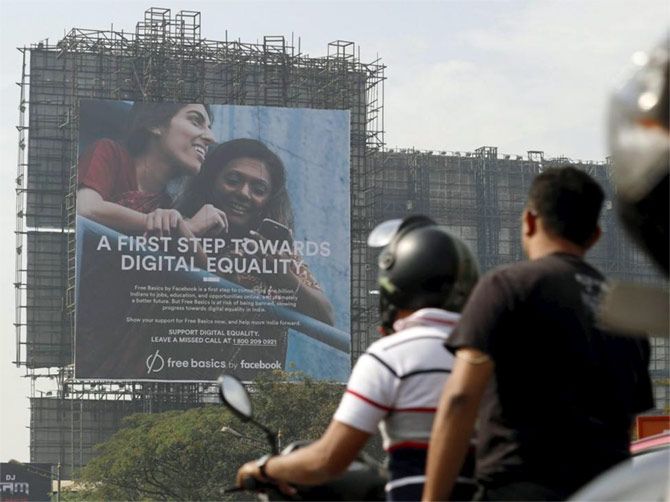Decisions of the Telecom Regulatory Authority of India (Trai) have been under scrutiny for a while.
Rajeev Chandrasekhar, 52, in his second Rajya Sabha term and a former president of business chamber Ficci, beside a record as an entrepreneur, including in the sector, has been a strong critic of the regulator.

He talks to Malini Bhupta on the subject.
Edited excerpts:
You were among the earliest to flag the need to define net neutrality (NN) and nothing happened on it till last week. What do you think of the pre-consultation report on it from Trai?
It is their much overdue attempt to define net neutrality, 18-24 months after the debate started. It remains a mystery why they waited so long, started two independent consultations and now a third one on NN.
This is not the way I would have liked the regulator to approach an important consumer issue like NN.
It sends confused signals to investors and consumers. Arriving at a definition on NN and its principles should have happened much earlier, in a transparent manner.
 How has India approached the NN debate?
How has India approached the NN debate?
Where Trai went wrong on both the call drop regulation and differential pricing of data is that it has been caught up too much by what is out there in the media and public discourse.
Trai has not spent time on precedence, law, data and economics. A regulator cannot ignore facts and focus on sound bites and slogans.
Is there a method behind Trai ‘s differential data pricing rules? Is there a paper on free data and now a pre-consultation paper on NN?
Clearly not. They should have come up with a comprehensive paper on NN and then look at differential data pricing and free data, along with other principles like throttling. To regulate NN, you must know what it is about.
Today, Trai is regulating differential data pricing or free data without defining what net neutrality is.
It is cart-before-horse, the consequence of finding yourself in a situation where you have done something which is likely to be subjected to a legal scrutiny; therefore, you are doing this.
It is a badly flawed approach and they must improve their processes. Trai does not have an overall road map of what it wants to achieve.
Why are the rules on differential pricing of data flawed?
The order is similar to the order on call drop penalty and very vulnerable to judicial scrutiny. Trai has decided to prohibit differential data pricing without proving that allowing it will lead to problems. Trai’s objective is that telcos do not exercise control on consumers’ choices.
Unfortunately, telcos have not held themselves up as responsible stakeholders. Having said that, they have a right to be heard. It should not be a personal view that should decide the fate of a telecom company or consumer.
Evidence-based conclusion should decide what telcos are doing is good or bad.
What went wrong with the call drops regulation?
On the one hand, the regulator said the call drop problem had been created by the telcos, with which I agree. Then, it issued a technical paper that said 40 per cent of call drops were because of consumer behaviour. You have to be clear how you arrived at the first conclusion.
Somebody must explain to the regulator that you are a quasi-judicial authority; personal opinions are not important.
Is it time to amend the Trai Act?
You got an answer from the regulator himself on this, when he said he could not levy a penalty on telcos and the Supreme Court says the same thing.
The Act was previously amended in 2000, to address the issue of licensing. Technology has transformed in 16 years and the Internet has transformed everything; the Trai Act is completely inconsistent with that.
I have argued the Act must be amended, to give it more powers to intervene in consumer issues. Second, Trai must be accountable to Parliament. It is not accountable to anyone and it must be made so, for its orders and performance.









